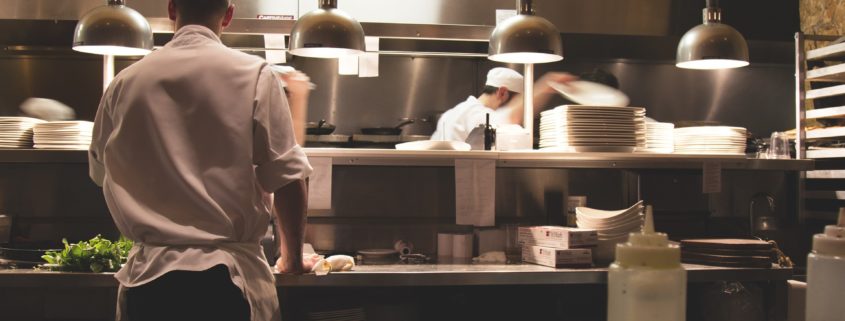Is Food Safety an Optional Extra for food Businesses?
If you are a business owner or manager in the food industry, what would be top of your list for ensuring success and setting you apart from the rest? The best menu, the best food or products, the newest techniques, the best décor, the best staff, the best location? Perhaps a combination of all of them or perhaps you really do lead the field in one or two and you’re a pioneering force within the industry. But what about food safety? Where does that feature in your list of priorities?
Food Business Operators have a legal, moral and commercial obligation to ensure the food they are producing is safe, and will not cause harm, injury or illness. With regulations and laws increasing and becoming ever tighter, good food safety procedures and training are imperative to the success of any business. Whatever your field, inspections by your local authority are mandatory and your food safety processes will be subject to close scrutiny.
Most businesses providing food to the public will come under the Food Hygiene Rating Scheme whereby, based on the results of an inspection, you are given a hygiene rating of 0 to 5, with 5 being the highest and 0 being the lowest. Although you might choose not to display the certificate in your window if you get a lower rating, all results are available on the Food Standards Agency website, so there is nowhere to hide.
Inspectors seek to ensure that you are creating food and food products that are safe to eat. It won’t just be the end goods they’re looking at but the whole chain of events from its inception to the final product and all the equipment, processes, procedures, methods and systems in between.
Inspectors will also look at your advertising and product descriptions. Are you labelling your food, your menus and products accurately or are you being deliberately ambiguous and hoodwinking customers? Alternatively, you could be unaware that you are misleading customers and need guidance.
If you fall short in any area, inspectors will not be forgiving and enforcement officers have the power to take a number of different actions, depending on the severity of the problem. A best case scenario would be a ‘hygiene improvement notice’ where you would have to ensure you changed certain procedures in order to meet with government standards and law. A worst case scenario would be for them to recommend prosecution which could lead to a fine, being banned from the food industry or even imprisonment.
With such rigorous regulations, excellent food safety practices need to be in place and all staff should be trained, either to a basic or more advanced level, depending on their level of responsibility and involvement in the production process. You can choose to improve your business by updating your décor, changing the tablecloths, updating your menu or hiring more staff but these are choices that you have the luxury of making or not making. Food safety is not an optional extra like any of these might be, rather, it is an absolute essential to the success and safety of your business.
Remember however, that as important as compliance is, it is not an end in itself, but rather a means to an end. (Otherwise it can end-up as a mere ‘box ticking’ exercise which in the end is counter-productive). Ultimately, the most important reason Food Business Operators must take food safety seriously, is for the safety and wellbeing of their customers. That should always be the starting point. This involves:
– Protecting food from all types of contamination
– Preventing harmful bacteria from multiplying in food
– Destroying any harmful bacteria through correct processing and thorough cooking
– Disposing of any contaminated, unfit and/or suspect food.
Finally, and very importantly, managers, supervisors and team leaders can massively help implement standards and maintain a good food safety culture if they lead by example and put into practice what they preach. Hypocrisy is a big turn-off. A manager who takes a ‘maverick approach’ to food safety, or is sloppy, will often find that their staff are too – and in reality, to a greater degree.
Here are just some of the many benefits in taking food safety seriously and promoting a good food safety culture
– Reduced risk of food poisoning
– Satisfied customers
– Good reputation
– Peace of mind
– Hygienic working conditions, which leads to increased staff morale
– Legal compliance.
On the other hand, here are some of the costs of poor food safety practices
– Food poisoning and/or food safety incidents
– Increased complaints
– Poor reputation
– Less profitability
– Low staff morale
– Legal action / fines
– Imprisonment
– Closure of the business.
Catersafe Consultants have a wide range of training available from eLearning to a trainer coming to your premises to train you and your staff. We pride ourselves on thorough and comprehensive training, equipping you to put in place procedures which will ensure the highest standards; standards which are crucial to your business. Get in touch – we’d love to help you achieve those standards and be a leader in your industry.
Check out our eLearning course on how to achieve a maximum Food Hygiene Rating for your food business! Sign up for a free trial today!











